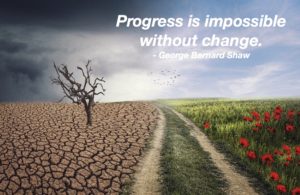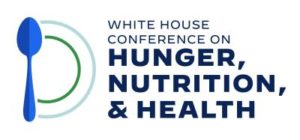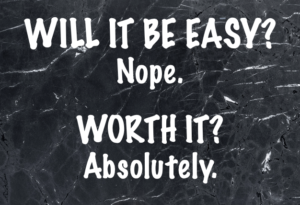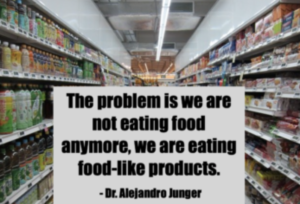 Each week, our objective with our Eat REAL America coaching tips is to either inform, inspire or entertain (OK, maybe a little of each!).
Each week, our objective with our Eat REAL America coaching tips is to either inform, inspire or entertain (OK, maybe a little of each!).
Occasionally, we also like to include tips that discuss current events and get us all to step back and think (even if it’s just for a minute).
This week, we wanted to share an article that was recently published by NPR.
The article relates to a conference that will be held at the White House on September 28th…
the White House Conference on Hunger, Nutrition, & Health.
 In case you’re interested, the event will be live-streamed on the conference website.
In case you’re interested, the event will be live-streamed on the conference website.
Along with this conference, the Biden Administration will also release a “National Strategy” with actions the federal government will take to try to tackle the challenges our country is facing relating to food, hunger, nutrition, and health.
Why is this a big deal?
It’s been over 50 years since a similar conference was held at the White House by the Nixon Administration in 1969. That conference was the launchpad for major programs that are still in place today, including the Special Supplemental Nutrition Program for Women, Infants, and Children (WIC), the school lunch program, and changes to nutrition and food labeling guidelines.
What is the goal?
 The Administration’s stated goal is to “End hunger and increase healthy eating and physical activity by 2030, so that fewer Americans experience diet-related diseases like diabetes, obesity, and hypertension.”
The Administration’s stated goal is to “End hunger and increase healthy eating and physical activity by 2030, so that fewer Americans experience diet-related diseases like diabetes, obesity, and hypertension.”
They have identified five pillars that the conference will focus on including:
- Improve food access and affordability (end hunger by making it easier for everyone to access and afford food).
- Integrate nutrition and health (prioritize the role of nutrition and food security in overall health, including disease prevention and management, and ensure that our health care system addresses the nutrition needs of all people).
- Empower all consumers to make and have access to healthy choices (foster environments that enable all people to easily make informed choices, increase access to healthy food, encourage healthy workplace and school policies, and invest in public messaging and education campaigns that are culturally appropriate and resonate with specific communities).
- Support physical activity for all (make it easier for people to be more physically active, increase awareness of the benefits of physical activity, and conduct research on and measure physical activity).
- Enhance nutrition and food security research (improve nutrition metrics, data collection, and research to inform nutrition and food security policy).
How would this all be achieved?
Leading up to the conference, a task force made up of a diverse set of subject matter experts and industry leaders put forth a series of recommendations and actions – 30 to be exact! You can read more about these policy recommendation in this report (warning – it’s 129 pages long!).
The NPR article focused on 7 of these ideas that the task force included in its report. In case you don’t want to read the whole article, here are the 7 they pulled from the report:
- Treat food as medicine. Imagine your doctor prescribing (and your insurance covering) fruits and vegetables, along with education, to help treat illness and disease. Not just pills?! Another idea in the report is “medically-tailored meals” to try to help people reverse existing chronic disease.
 Focus on quality of calories, not just quantity. We all know that ultra-processed foods affect our health dramatically different than REAL foods. These recommendations discuss getting people sufficient access to enough nutritious (quality) foods, and not solely focused on just quantities of food.
Focus on quality of calories, not just quantity. We all know that ultra-processed foods affect our health dramatically different than REAL foods. These recommendations discuss getting people sufficient access to enough nutritious (quality) foods, and not solely focused on just quantities of food.- Expand access to dietary and lifestyle counseling. Imagine your insurance paying for cooking classes and nutrition education (maybe even Eat REAL America cooking classes, online courses and website memberships)! The focus is on lifestyle change to prevent and reverse disease as an alternative to just prescribing the pills.
- Support food entrepreneurs. Ideas include providing incentives to healthy food businesses, including things like teaching kitchens, community gardens, healthy food shops and restaurants, healthy food production, nutrition education and more.
- Increase number of new farmers growing healthy foods using regenerative farming techniques. Programs to recruit and support new farmers to grow fruits, vegetables, nuts and other healthy crops. Plus, incentives to improve the health of our soils, which continue to be depleted of important nutrients.
- Make school meals free for all students. This was offered during the pandemic. Should it be made permanent?
- Establish a federal “food czar.” Imagine a National Director of Food & Nutrition to streamline and coordinate the over $150 billion currently spend each year of food and nutrition programs.
What do you think?
Would these ideas get America eating healthier?
We have shared our thoughts several times about the crisis we have in this country when it comes to diet-related illness and disease. For a quick refresher, check out this coaching tip that shows U.S. life expectancy declining, “health” expenditures continuing to rise, and poor diets are responsible for over 500,000 deaths per year.
We aren’t going to bore you with a deep dive into these proposed strategies in this coaching tip.
We all know there is no quick and easy fix.
If the government was truly interested in helping Americans to live long and healthy lives, while also dramatically reducing the costs we incur every year treating preventable illness and disease, there would be huge benefits for our country and our society. Just think how much taxpayer money could be freed up for other things! This is not a Democrat thing or a Republican thing – neither party has been able to make meaningful progress. Let’s just say there is currently a lot of government support for companies and policies that are contributing to the problem instead of moving us toward the desired end result.
 When we began Eat REAL America, our guiding philosophy was that healthy eating needs to be:
When we began Eat REAL America, our guiding philosophy was that healthy eating needs to be:
- Affordable
- Easy to prepare
- Good for you
- Taste amazing!
We still strongly believe this is true.
If one of those elements doesn’t exist, healthy eating won’t either. For example, making fruits and vegetables more accessible and affordable on its own isn’t enough. People have to know how to easily turn those ingredients into delicious meals that they want to make again. These are the four criteria we continue to use for every recipe on the Eat REAL America website! Especially when people have the desire to try, it works — we have seen it time and time again.
In our opinion, policies and strategies should be focused on enabling people to enjoy foods that meet these four criteria. Maybe we should weigh in with our thoughts on how to make progress in each of these areas?!
As a country, doesn’t it feel like we often make things way too complicated? After all, at the end of the day, isn’t it just about enjoying foods that taste great and are good for you?
What changes would you recommend to get America eating healthier?


A food czar says it all, in my opinion. Give Americans credit for the ability to understand what nutritious food is. The food industry spends billions in advertising “easy” food void of any nutritional value. That is what influences the average American. Now the government will sweep in and fix it all? Not so sure. Just look at the 1970s food pyramid. Historically, more government control in any arena doesn’t seem to attain the desired goal. I would recommend more privately owned companies like Eat Real America to change Americans’ eating habits! Keep teaching!!
Thank you! Amen! We completely agree with you, and thank you for keeping us inspired!
I hate eating out because it is almost impossible to get whole grains. I would even pay extra for whole grain bread for my sandwich, brown rice or whole grain pasta. I don’t think people realize how good it tastes.
We completely agree with you! Whole grain really does have so much more flavor – thank you for sharing!
Thank you for sharing the link to the upcoming White House conference on Hunger, Nutrition and Health. I don’t have a lot of faith in what the government can achieve based on past failures but let’s hope it moves our country in the right direction. Education is key. I hope they will consider the seven recommendations that NPR focused on. I think food companies will have to be convinced it’s in their best interest to look for ways to produce healthier food products with less harmless additives. People vote with their pocketbooks so if they decide to buy less junk food, the producers will be forced to change. BTW, we have a farmer in our extended family successfully using regenerative farming techniques: https://www.greenamerica.org/story/rick-clark. We are all very proud of what Rick has accomplished.
Thank you for the feedback – we are definitely right there with you! And, how exciting that your family member is seeing success with this – congratulations to Rick! We appreciate you sharing this with us!